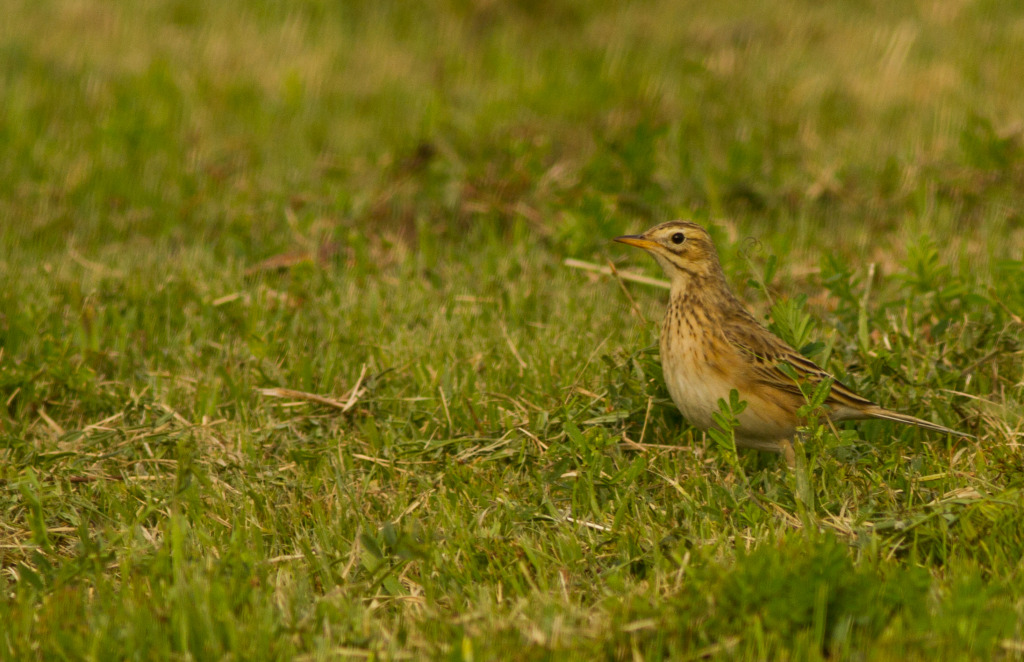Bird News from Subhojit Chakladar
Slightly over 24 hours on the island and some good luck with the weather. Decent number of common passage migrants but high numbers of buntings (9 species) and phylloscopus warblers. There were many local birders and it was fun walking around various trails, running into them and exchanging notes. The boat rides were over calm seas in both directions and without anything of note on the sea. Dense fog rolled in at about 5pm on 9th leading to visibility being reduced to a few meters. This also led to a fresh wave of arrivals from the west, mostly buntings. Highlights of the trip are as follows:
Little Bunting – The dominant species on the island. Conservative estimate of 200+, mostly feeding in the fields.
Chestnut Bunting – Ranking 2nd in terms of numbers amongst the buntings. The log late afternoon on 9th brought in a fresh wave. At one point there were about 2 dozen in a single spot.
Yellow-browed Bunting – Feeding frantically with the others. There were times when 5 species of buntings were present in the same field of view. A delightful sight indeed!
Mugimaki Flycatcher – Close of 3 dozen birds throughout the island. The dominant species of the “colorful” flycatchers.
Asian Brown Flycatcher – The dominant flycatcher species. At least 100+.
Taiga Flycatcher – A male in breeding plumage calling through the fog after sun down. Good looks from about 15m but too dark to photograph.
Yellow-rumped Flycatcher – Some rather confiding individuals. Under a bright blue sky, there are few birds that can look prettier!
Yellow-browed Warbler – The dominant warbler. Too many to count. At one point, there were 11 birds feeding in the same tree.
Eastern-crowned Warbler – About 20 individuals encountered during the stay.
Brown Shrike – About 8 birds, mostly concentrated near the village and the ‘col’.
Richard’s Pipit – 5 birds near what used to be the pond. Rather approachable.
Siberian Blue Robin – A couple of birds seen at dusk though the fog.
Rufous-tailed Robin – Large numbers, mostly heard.
Yellow Bunting – 3 birds seen on the morning on the 10th.
Chestnut-cheeked Starling – Seems freshly arrived on the morning of 10th along with a Red-billed Starling.
Daurian Starling – Seen minutes before boarding the return boat. First seen feeding on the top of a tree but soon went into the foliage.
White-throated Rock Thrush – 4 birds including 3 males.
White-breasted Waterhen – Probably pulled in by the fog. Seen first on 9th at dusk and encountered multiple times in the morning next day.
Chinese Grosbeak – Somewhere between 30 and 40 birds.
Dusky Thrush – The only species of thrush other than Pale Thrush.
probable Common Rosefinch – A female type bird seen perched at a distance. Soon after 3 birds flew out with one strikingly red individual. Based on overall shape, bill structure and color of the male, it was probably this species.
Oriental Scops Owl – Heard multiple times after 4pm on the 9th. Calls from at least 4 individuals.
Oriental Cuckoo – Heard only.
One point worth noting was the complete lack of any wagtails.






